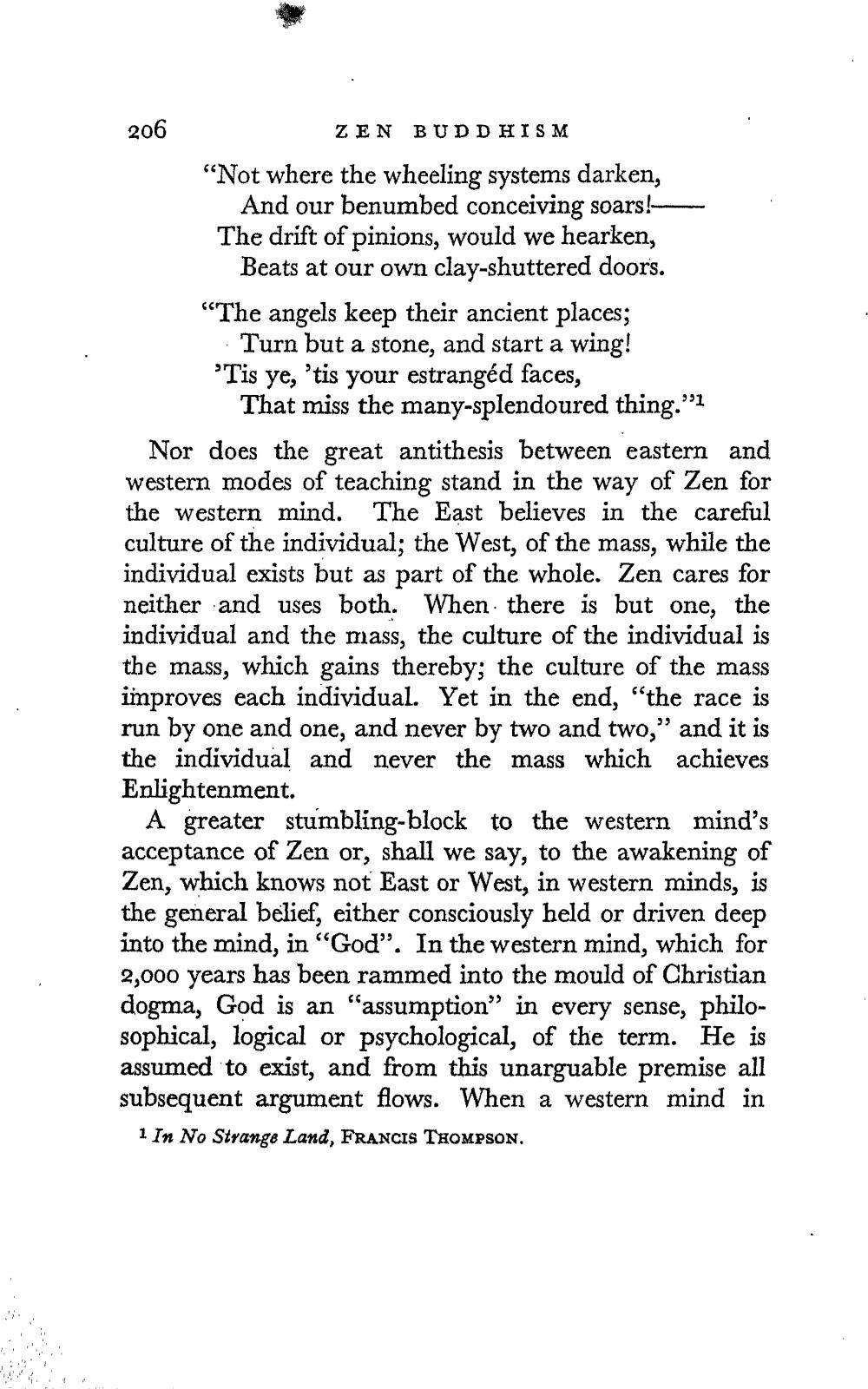________________
206
ZEN BUDDHISM
"Not where the wheeling systems darken,
And our benumbed conceiving soars!The drift of pinions, would we hearken,
Beats at our own clay-shuttered doors. "The angels keep their ancient places;
Turn but a stone, and start a wing! 'Tis ye, 'tis your estranged faces,
That miss the many-splendoured thing."1
Nor does the great antithesis between eastern and western modes of teaching stand in the way of Zen for the western mind. The East believes in the careful culture of the individual; the West, of the mass, while the individual exists but as part of the whole. Zen cares for neither and uses both. When there is but one, the individual and the mass, the culture of the individual is the mass, which gains thereby; the culture of the mass improves each individual. Yet in the end, "the race is run by one and one, and never by two and two," and it is the individual and never the mass which achieves Enlightenment.
A greater stumbling-block to the western mind's acceptance of Zen or, shall we say, to the awakening of Zen, which knows not East or West, in western minds, is the general belief, either consciously held or driven deep into the mind, in "God". In the western mind, which for 2,000 years has been rammed into the mould of Christian dogma, God is an "assumption" in every sense, philosophical, logical or psychological, of the term. He is assumed to exist, and from this unarguable premise all subsequent argument flows. When a western mind in
1 In No Strange Land, FRANCIS THOMPSON.




